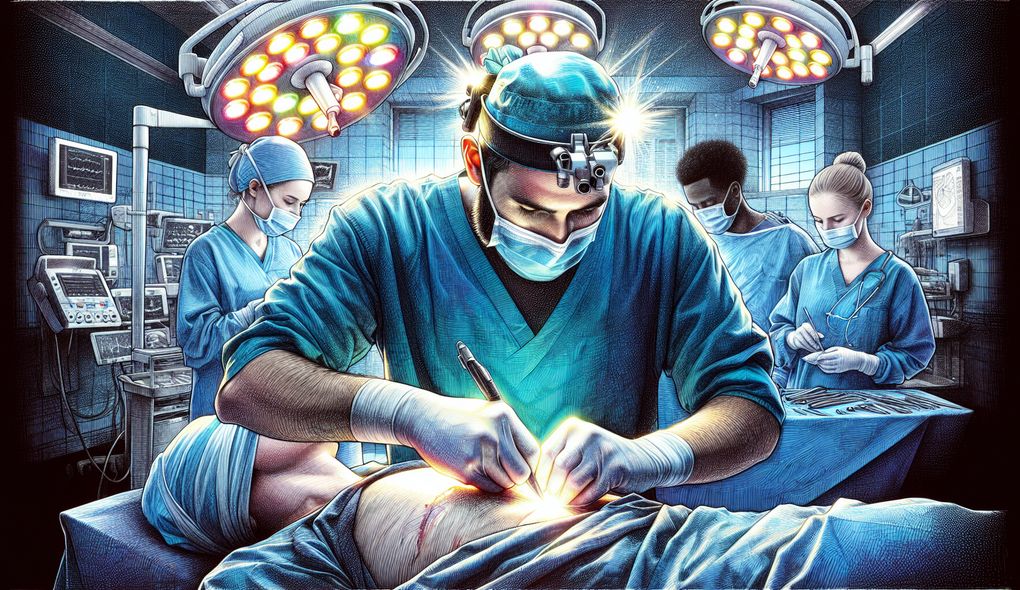How do you approach continuous improvement in your surgical skills?
JUNIOR LEVEL

Sample answer to the question:
I approach continuous improvement in my surgical skills by attending regular medical conferences and workshops to stay up to date with the latest advancements in trauma surgery. I also seek feedback from experienced surgeons and participate in surgical simulations to enhance my skills. Additionally, I regularly review medical literature and research articles to stay informed about best practices in trauma surgery. Continuous improvement is important to me because it allows me to provide the best possible care to my patients and stay at the forefront of my field.
Here is a more solid answer:
In order to continuously improve my surgical skills, I adopt a multi-faceted approach. Firstly, I actively seek feedback from my colleagues and mentors, both during and after surgeries. By analyzing their input, I identify areas for improvement and integrate their suggestions into my practice. Additionally, I regularly participate in surgical workshops and training programs to stay updated on the latest techniques and technologies in trauma surgery. These experiences allow me to refine my skills and broaden my knowledge base. Furthermore, I actively engage in self-study, reading medical journals and attending conferences to stay abreast of the evolving field of trauma surgery. I also make efforts to learn from my own experiences by conducting regular self-reflection and analysis of my surgical cases. By identifying successes and areas for growth, I strive to continually enhance my decision-making and problem-solving abilities. Ultimately, the goal of my continuous improvement endeavors is to provide the highest quality care to my patients and contribute to advancements in the field of trauma surgery.
Why is this a more solid answer?
The solid answer expands on the candidate's approach to continuous improvement by providing specific details on how they actively seek feedback, participate in workshops and training programs, engage in self-study, and reflect on their own experiences. It highlights the candidate's commitment to providing high-quality patient care and contributing to advancements in trauma surgery. However, it can be further improved by including examples of how the candidate has applied their continuous improvement efforts to their surgical skills or specific cases.
An example of a exceptional answer:
I am dedicated to continuous improvement in my surgical skills and strive to provide the best possible care to my patients. To achieve this, I have implemented a comprehensive approach that encompasses multiple strategies. Firstly, I actively seek feedback from my colleagues and mentors, both informally during surgeries and through structured debriefing sessions. This feedback helps me identify areas for improvement and refine my techniques. Additionally, I regularly attend national and international surgical conferences to stay updated on the latest advances in trauma surgery. These conferences provide valuable insights into emerging techniques and procedures, which I then incorporate into my practice. Furthermore, I actively participate in surgical simulations and workshops to enhance my technical skills and maintain proficiency in emergency procedures. I also engage in ongoing self-study, regularly reviewing medical literature and research articles to stay informed about best practices in trauma surgery. By staying at the forefront of knowledge, I can make evidence-based decisions and provide optimal care to my patients. Moreover, I actively collaborate with other surgeons and contribute to research projects in order to further contribute to the field. By disseminating knowledge and sharing experiences, I aim to drive continuous improvement not only in my own skills but also in the wider surgical community. Overall, my commitment to continuous improvement ensures that I am constantly evolving as a surgeon and delivering the highest standard of care to my patients.
Why is this an exceptional answer?
The exceptional answer provides a comprehensive approach to continuous improvement by incorporating specific strategies such as seeking feedback, attending conferences, participating in simulations and workshops, engaging in self-study, and contributing to research projects. It highlights the candidate's dedication to staying at the forefront of knowledge and driving improvement in the surgical community. Additionally, it emphasizes the candidate's commitment to delivering the highest standard of care to their patients. The answer could be further enhanced by providing examples of specific instances where the candidate has applied their continuous improvement efforts in their surgical practice or patient outcomes.
How to prepare for this question:
- Stay updated on the latest advances in trauma surgery by reading medical journals and attending conferences.
- Actively seek feedback from colleagues and mentors to identify areas for improvement.
- Participate in surgical workshops and simulations to enhance technical skills.
- Engage in self-reflection and analysis of surgical cases to identify areas for growth.
- Contribute to research projects and collaborate with other surgeons to drive continuous improvement.
What are interviewers evaluating with this question?
- Surgical Skills
- Continuous Improvement
- Knowledge of Emergency Procedures
- Decision-Making
- Problem-Solving

